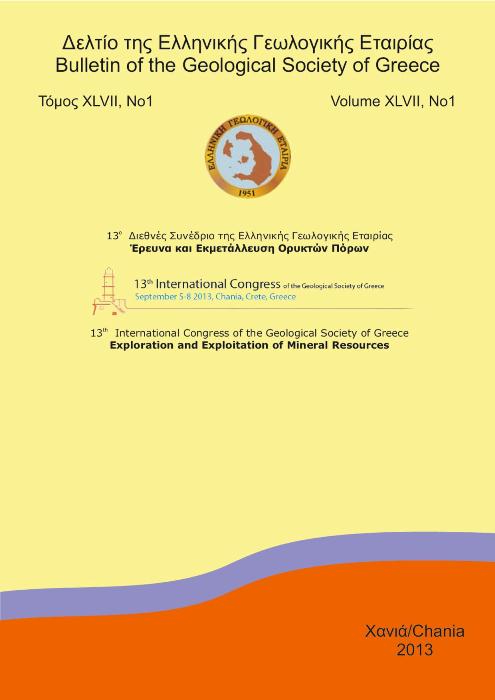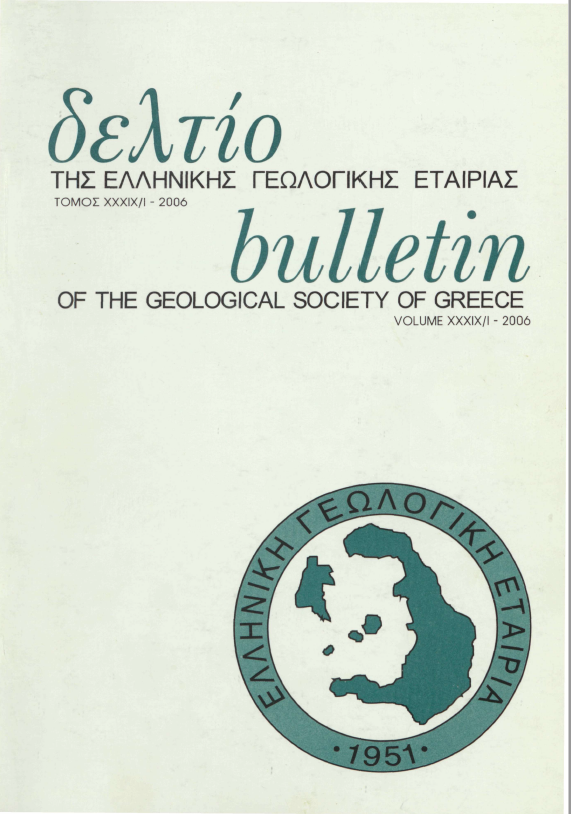PLIOCENE BRACHIOPODS FROM RHODES ISLAND (CAPE VAGIA SECTION)

Περίληψη
Στην εργασία αυτή περιγράφονται επτά είδη Βραχιονόποδων (6 terebratulids and 1 craniid) των ανω-Πλειοκαινικών αμμωδών αποθέσεων και ασβεστόλιθων της τομής Cape Vagia (νήσου Ρόδου): Gryphus sp., Terebratulina retusa, Megerlia truncata, Megerlia truncata var. monstruosa, Argyrotheca cordata, Megathiris detruncata και Novocrania anomala. Για πρώτη φορά αναφέρεται το Megerlia truncata var. monstruosa από το Πλειόκαινο της Ελλάδας και το είδος Megerlia truncata από το Πλειόκαινο της Ρόδου. Επίσης τα είδη Megathiris detruncata, Terebratulina retusa και Argyrotheca cordata περιγράφονται για πρώτη φορά από το Πλειόκαινο της Ρόδου. Τα Βραχιονόποδα αυτά αποτελούν βιοκοινότητα η οποία παρουσιάζει πολλές ομοιότητες με την αντίστοιχη συγκέντρωση ειδών στη σημερινή Μεσόγειο, η οποία χαρακτηρίζει ρηχών υδάτων και υψηλής ενέργειας περιβάλλοντα. Η συνάθροιση των ειδών Gryphus sp., Terebratulina retusa και Novocrania anomala συσχετίζεται με τα ενδιάμεσης ενέργειας βαθιών υδάτων περιβάλλοντα
Λεπτομέρειες άρθρου
- Πώς να δημιουργήσετε Αναφορές
-
Koskeridou, E. (2007). PLIOCENE BRACHIOPODS FROM RHODES ISLAND (CAPE VAGIA SECTION). Δελτίο της Ελληνικής Γεωλογικής Εταιρείας, 40(1), 121–133. https://doi.org/10.12681/bgsg.16495
- Ενότητα
- Παλαιοντολογία, Στρωματογραφία και Ιζηματολογία

Αυτή η εργασία είναι αδειοδοτημένη υπό το CC Αναφορά Δημιουργού – Μη Εμπορική Χρήση 4.0.
Οι συγγραφείς θα πρέπει να είναι σύμφωνοι με τα παρακάτω: Οι συγγραφείς των άρθρων που δημοσιεύονται στο περιοδικό διατηρούν τα δικαιώματα πνευματικής ιδιοκτησίας επί των άρθρων τους, δίνοντας στο περιοδικό το δικαίωμα της πρώτης δημοσίευσης. Άρθρα που δημοσιεύονται στο περιοδικό διατίθενται με άδεια Creative Commons 4.0 Non Commercial και σύμφωνα με την οποία μπορούν να χρησιμοποιούνται ελεύθερα, με αναφορά στο/στη συγγραφέα και στην πρώτη δημοσίευση για μη κερδοσκοπικούς σκοπούς. Οι συγγραφείς μπορούν να: Μοιραστούν — αντιγράψουν και αναδιανέμουν το υλικό με κάθε μέσο και τρόπο, Προσαρμόσουν — αναμείξουν, τροποποιήσουν και δημιουργήσουν πάνω στο υλικό.




